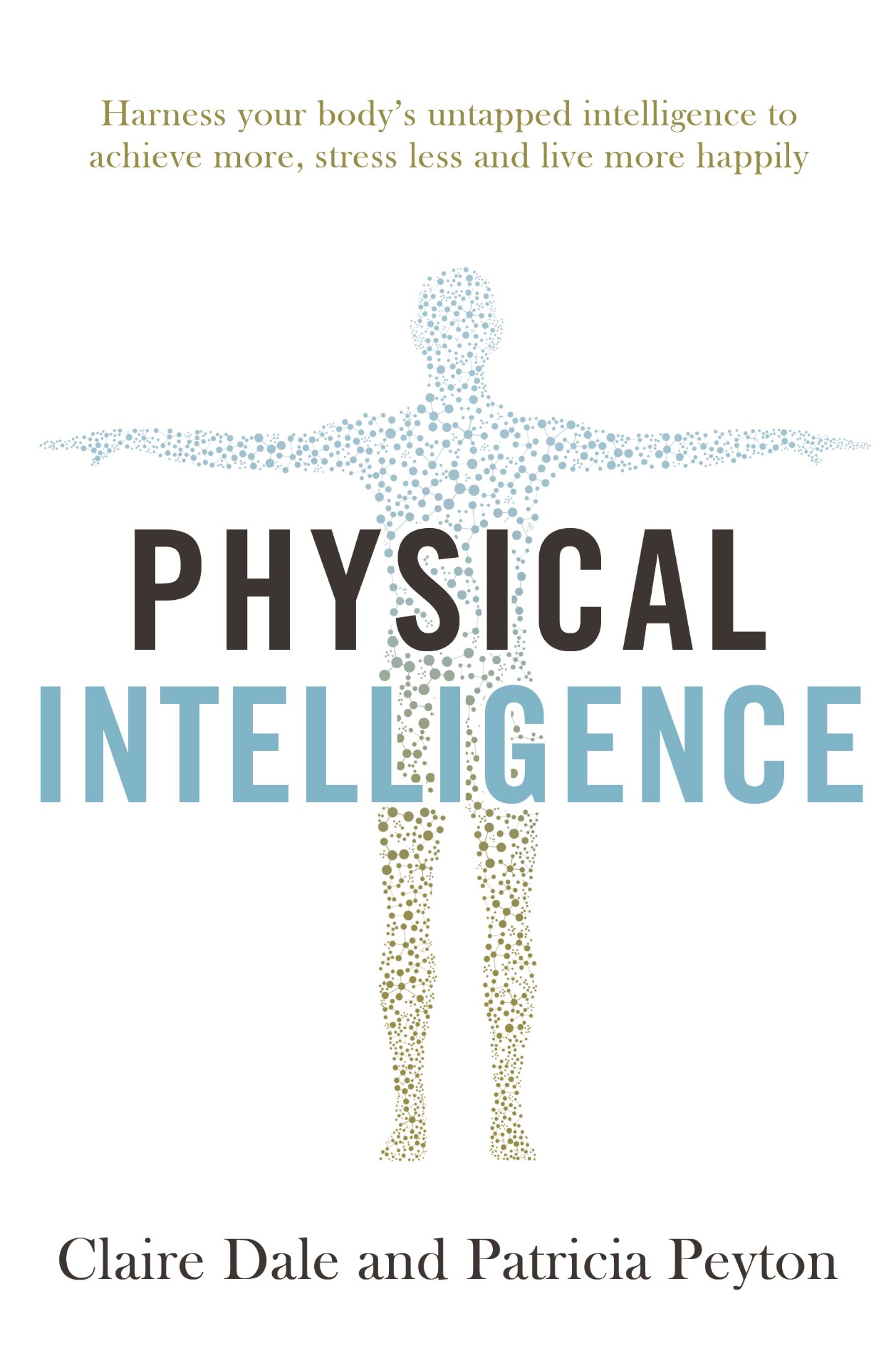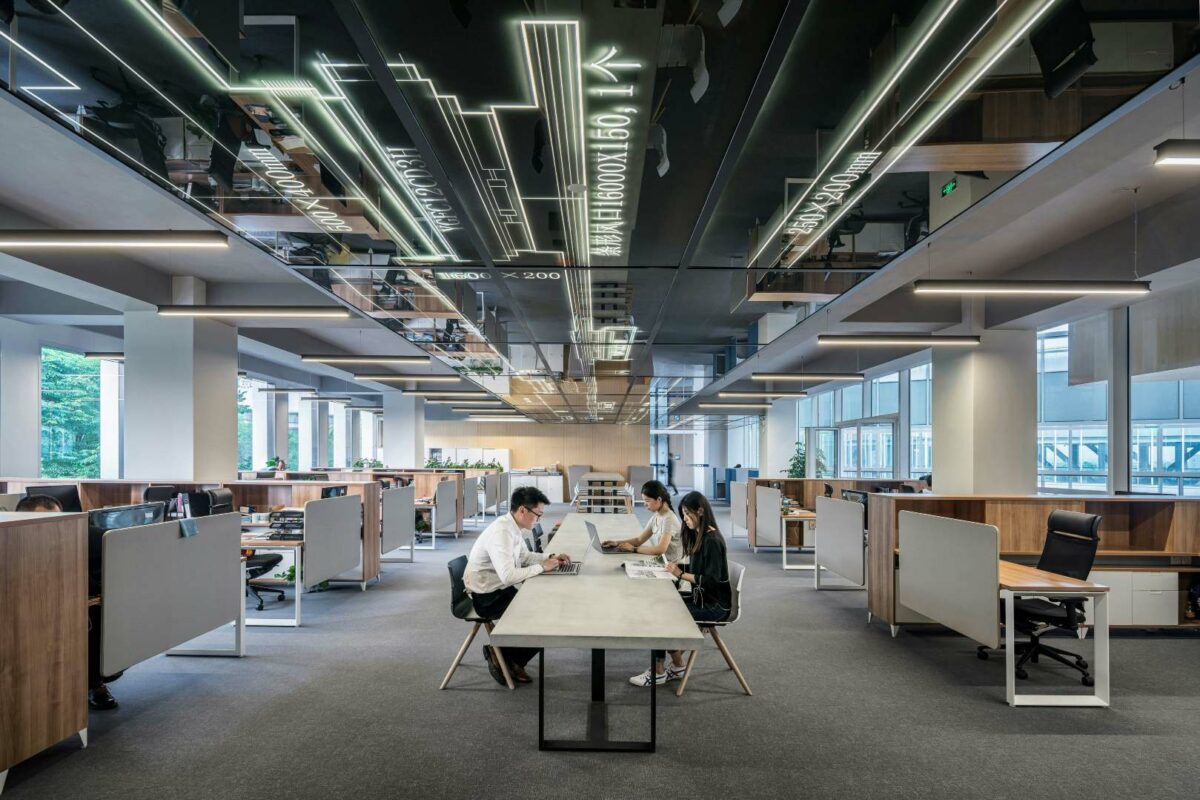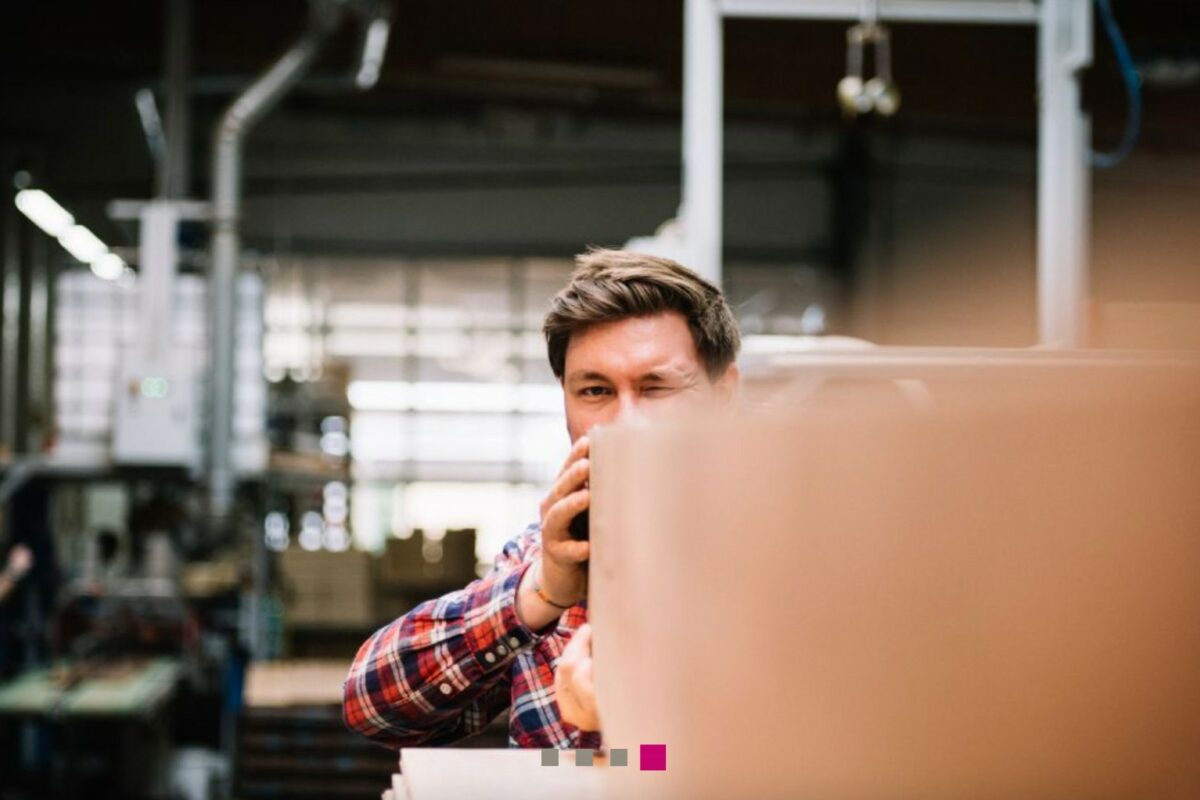The chances are you spent more time than ever in front of your computer screen in 2020, squirreled away in whatever corner of your home you’ve converted into your office – sometimes with toddlers wrapped around your legs and cats walking across your keyboard. But there are positives and negatives to spending time in front of our screens and where – and how – we work has a direct impact on our wellbeing and performance.

When we work online, dopamine, (the reward chemical), is produced in greater quantities because we are able to achieve more and reach our goals faster. We are constantly experiencing novelty, and this keeps us engaged, possibly even addicted, over extended periods of time. That dopamine is a large part of what draws us to our screens. However, screen time can also interfere with our creativity. And extensive screen time often leads to muscular tension in our shoulders, which has a negative impact on the quality of our thinking and even our confidence.
Physical Intelligence is the ability to detect and actively manage the balance of certain key chemicals in our bloodstream and nervous system, so that we can achieve more, stress less and live and work more happily. It enables us to approach our work environment more thoughtfully to ensure we’re creating an optimal environment for our brain and body chemistry.
Here’s how to adjust your habits and work environment, so you set yourself up for success…
Sit and stand up straight
Posture really matters, far more than you think. It impacts your mental and emotional performance.
The amount of time spent we spend hunched over screens and devices, with jutting chin and curved spine, literally puts us in the position of defeat. It inhibits acetylcholine (a balance chemical essential for recovery) from reaching our brain and reduces the amount of space there is for our lungs to expand, impeding our breathing. In turn, shallow breathing raises carbon dioxide levels, which elevates cortisol levels, reducing the quality of our cognitive function and mental and emotional performance.
Sit or stand with your feel flat on the floor, grounding you, straighten your spine (imagine a string from the top of your head suspending you from the ceiling) and square your shoulders (imagine them floating away from you toward opposite sides of the room). Pay attention to your posture throughout the day and consider investing in a posture device to remind you. Posture also influences how confident we feel and how we’re perceived. Research indicates that we look to those with open, expansive posture to lead us during times of crisis.
Practice paced breathing
A study of South African bankers found that after 21 days of paced breathing, they achieved an average of 62% improvement in cognitive capacity on complex decision-making tasks, whereas poor breathing leads to procrastination and delaying important decisions.
Paced breathing produces DHEA, our vitality chemical that is so powerful in synthetic form it is a banned substance for Olympic athletes. Yet we can produce it naturally every day. Paced breathing also releases acetylcholine, which counteracts adrenalin (the fear/excitement chemical) empowering us to feel emotionally stable and confident, and able to handle situations with clarity, balance, and control.
Allocate 10+ minutes daily to breathing diaphragmatically, with a steady count in (through the nose) and out (through the mouth) – in and out counts can be different. Explore counts comfortable for you. Meditation is a great way to bring it into your daily routine.
Use nature to spark creativity: Have you ever sat in front of the screen waiting for that creative inspiration to dawn on you? Turns out that is the last place we should be. Dopamine is the most important chemical for creativity. It enables connections across multiple areas of the brain – including vision and imagination – and is released when things are novel, fun and when you look at them from different perspectives. It is also released when you see stimulating or inspiring scenery or art, and is critical for our desire to reach our goals.
A quiet mind and an internal focus help us capture ideas rather than having them drowned out by too much external data. Don’t try too hard, though, because making an effort to be creative can actually impede ideas. Instead, we need to relax, let go, and let them come naturally (have you ever woken up in the morning with the solution to a problem in your mind, clear as day?).
Just before a creative connection is made, the visual cortex of the brain relaxes and we enter a momentary calm alpha wave brain state. To increase the chances of having that type of an insight, it helps to close your eyes and relax and clear your mind.
So, if you want to spark a creative idea, step away from your screen, get a good night’s sleep, and get out in nature. If your creativity is blocked and you cannot move from your desk, simply shifting your perspective and looking at something you find beautiful in nature or art.
Get moving
Research from Stanford University shows that only 50% of people can come up with a high-quality new idea while seated and looking at a fixed object. In contrast, while walking (outside or inside, even on a treadmill), people are 45% more likely to have a high-quality new idea.
Insight is encouraged by a change in focus; therefore, varying immersion in a particular task with relaxed focus elsewhere invites inspiration. When you consider how many hours people have been spending in videoconferences, especially over the past several months, it is clear that we need a revolution in the way we work, especially if we need to think creatively to respond to pandemic-related challenges.
While this may be more difficult in the midst of COVID-19, we can still make meaningful changes. Look for opportunities to get up and move throughout each day. Use a stand/sit desk, if possible, to be more mobile and flexible and set reminders for movement each hour.
Movement will benefit your physical health too. Countless studies indicate that we should be standing, moving or walking for 2-4 hours of each day. Those who sit all day have a 13% greater risk of cancer and 17% greater risk of mortality than those who spend time moving.
Seek out the light
Sunlight releases serotonin (a happiness chemical), which makes us feel lighter and more flexible. Creativity is a form of flexibility. If possible, set up your office in a sunny spot. Whenever the sun is shining, make sure to spend some time outside, or at least near a sunny window. And when you’re outside, take off your shades, get light into your eyes and soak up those feel-good rays.
Think twice before you straighten your desk
Most of us need to use both convergent (analytical) and divergent (creative) thinking throughout the work day. And whether our work environment is organised or messy can influence our ability to think either way.
For naturally divergent thinkers who may struggle to focus on implementation, disciplined and orderly activities such as archery, ballet, fencing, climbing, oil painting and tidying up your desk at the end of every day will help. Creating order by organising your body and environment can punctuate divergent thinking. It enables you to capture the essence of what you have explored and begin again the next day with a clear head.
Naturally convergent thinkers who want to increase their ability to be creative will benefit from less structured activities such as aikido, salsa dancing, cliff diving, joining the society of abstract expressionist painters and walking away from a slightly messy desk, ready to pick up again in the morning. Creating a little chaos and moving in ways that are flexible provokes connections between multiple brain areas – memory, emotion, experience – rather than only the pre-frontal cortex, where decisions are finalised.
In summary, if you’re sitting at your screen, practice good posture and paced breathing to enhance your cognitive function and your body’s ability to recover from effort…but don’t sit there too long. Block time on your calendars to step away from the screen. Spend some quiet time or time looking at whatever you find beautiful — and if it’s sunny where you are, get outside. You should return full of creative ideas.
For more content on how to work happier and stress less, click here.
Claire Dale and Patricia Peyton are the directors of Companies in Motion and authors of award-winning best-seller Physical Intelligence (Simon & Schuster), available now in ebook and hardback, priced at £14.99. Join the Physical Intelligence community for brilliant tips, tricks and exercises: www.companiesinmotion.com


Content Team
Work in Mind is a content platform designed to give a voice to thinkers, businesses, journalists and regulatory bodies in the field of healthy buildings.




